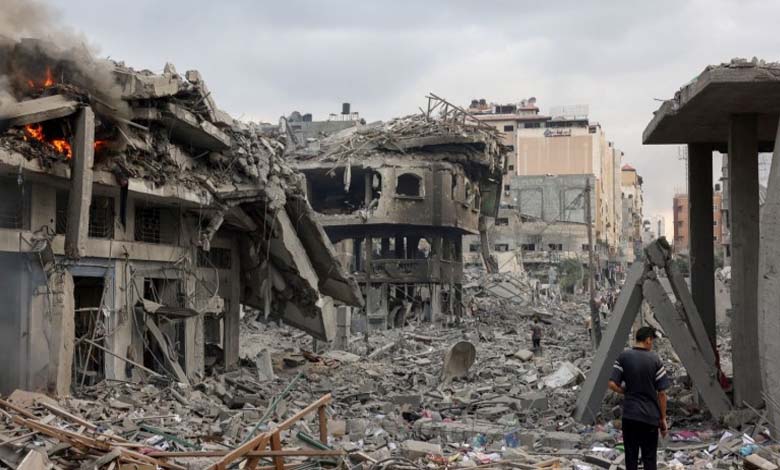Three Arab States Refuse to Participate in Gaza Peacekeeping Force
Saudi Arabia, Qatar, and Jordan fear that the peacekeeping force will be perceived as an occupation force or as protecting Israel from the Palestinians.

Saudi Arabia, Qatar, and Jordan have categorically refused a U.S. request to participate in a peacekeeping force in the Gaza Strip following the end of the war and the conclusion of a ceasefire agreement between Hamas and Israel as part of the current negotiations.
-
CNN: New Israeli Evacuation Orders for Thousands of Palestinians in Gaza
-
“The most horrible and cruel”… Palestinians experiencing the Nakba mourn their present
According to The Times of Israel, citing an Arab official and another anonymous source, these Arab countries fear that the peacekeeping force will be perceived as an occupation force or as protecting Israel from Palestinian reprisals.
The three countries oppose American efforts to establish a situation in the Gaza Strip after the war that would favor Israeli occupation and harm the Palestinian cause.
The United Arab Emirates and Egypt have expressed their willingness to participate in a peacekeeping force, but under certain conditions, according to sources cited by the Israeli newspaper in June/July.
-
UNRWA warns: Gaza witnesses the largest displacement of Palestinians since 1948
-
Palestinians in Gaza insist on their right to return despite Israeli aggression
The conditions set by Abu Dhabi and Cairo stipulate that the peacekeeping force must be part of an initiative leading to a two-state solution, but this seems likely to face strong opposition from Israeli Prime Minister Benjamin Netanyahu.
The UAE’s Minister of State for Political Affairs, Lana Nusseibeh, previously stated that her country would not participate in a peacekeeping force without the consent of the Palestinian Authority, considered the legitimate representative of the Palestinian people.
She told the British Financial Times, “Abu Dhabi discussed plans with the United States as a step to fill the void in besieged Gaza, address its humanitarian needs, and rebuild.”
-
Famine haunts two million Palestinians in Gaza amid a destructive war
-
Suspicions of organ theft from the bodies of Palestinians hover around Israel… Details
The British newspaper previously revealed in a report that Egypt and Morocco, both of which have peace treaties with Israel, were studying the plan without clarifying their stance, while indicating that Arab countries would respect the Palestinian side’s decision and coordinate with the Authority and even with Hamas on this matter.
The Arab League called in May for the deployment of peacekeeping forces to protect Palestinians from Israeli attacks in the Gaza Strip.
Palestinian Authority President Mahmoud Abbas, also known as Abu Mazen, insists that the Authority must govern the sector, supported by the United States and Arab countries, but Israel categorically rejects this. Netanyahu and his far-right allies demand continued Israeli security control over the besieged sector.
-
Violations and crimes by Hamas against Palestinians
-
Crimes of Hamas against Palestinians: A history of bloodshed
The Israeli government insists on the need to control the Philadelphi corridor and the Rafah crossing, conditions in the ceasefire negotiations that Hamas and Cairo reject.
Israeli opposition leader Yair Lapid, along with former government ministers such as Benny Gantz, widely criticize Netanyahu for failing to establish a clear plan for Gaza’s future after the war.
Netanyahu insists on the need to eliminate Hamas and prevent its return to power in the Gaza Strip, but observers doubt Israel’s ability to achieve this after about nine months of war.












